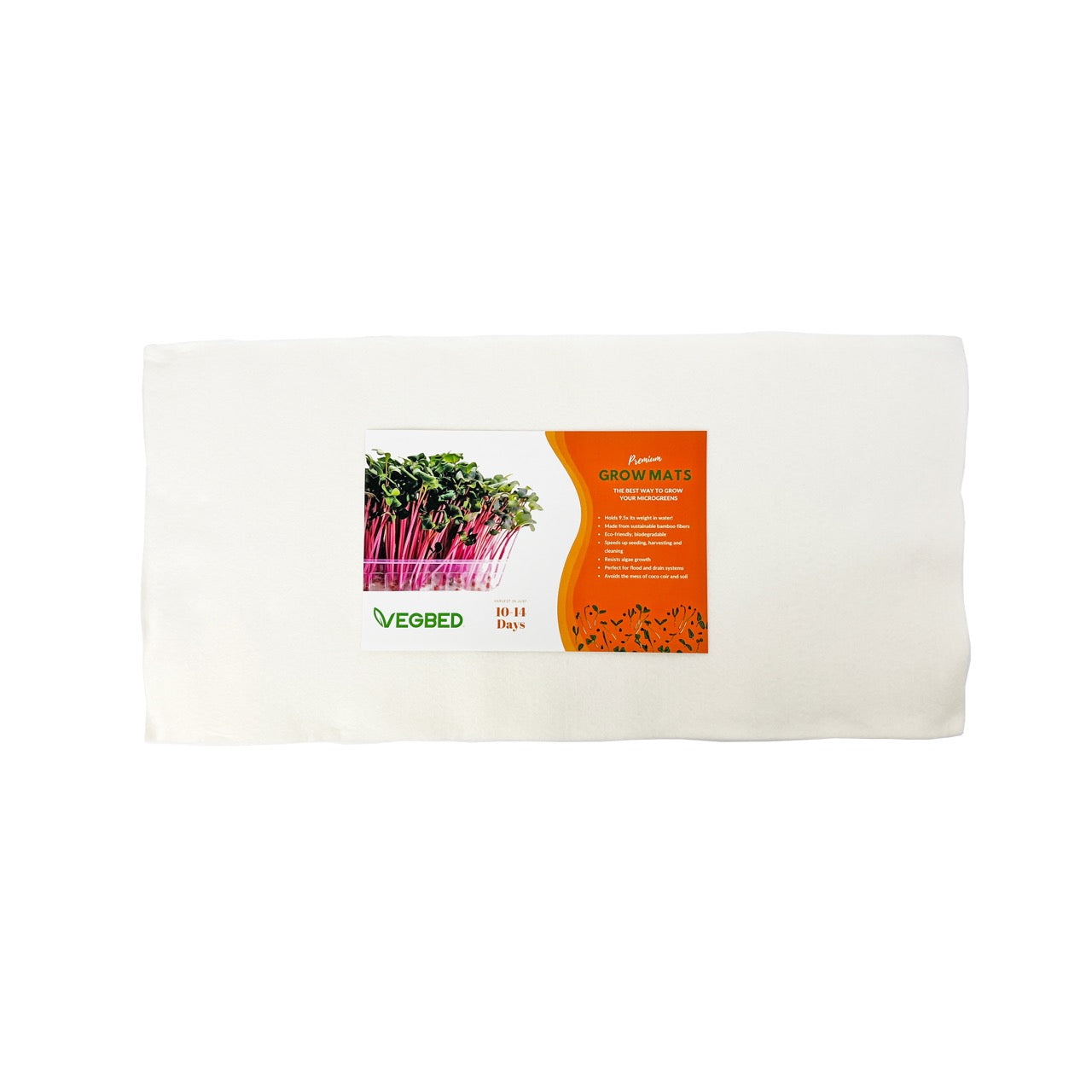When it comes to eating healthy, salads are a popular choice. But not all salads are created equal. Cobb salads may offer a mix of protein and greens, but microgreens pack an incredible amount of flavor, nutrients, and value into every bite.
Let’s break down how microgreens stack up against a traditional Cobb salad and why they’re worth considering for your next meal.
Cobb Salad vs. Microgreen Salad: A Detailed Nutritional Comparison
|
Category |
Cobb Salad (~350g) |
Microgreen Salad (~50g) |
|
Calories |
~550 |
~120 |
|
Protein |
~30g (chicken, egg, bacon, cheese) |
~4g (microgreens and nuts) |
|
Fat |
~40g (mostly saturated) |
~10g (mostly unsaturated) |
|
Carbohydrates |
~10g |
~6g |
|
Vitamin C |
~8mg (9% RDI) |
~20mg (22% RDI) |
|
Vitamin E |
~2mg (13% RDI) |
~10mg (67% RDI) |
|
Vitamin K |
~120mcg (100% RDI) |
~120mcg (100% RDI) |
|
Iron |
~2mg (11% RDI) |
~2mg (11% RDI) |
|
Calcium |
~100mg (10% RDI) |
~50mg (5% RDI) |
|
Omega-3 Fatty Acids |
Minimal |
~0.5g |
|
Sodium |
~900mg |
~50mg |
|
Antioxidants |
Moderate |
High |
Cost Comparison: Regular Salad vs. Microgreen Salad
You might be surprised to learn that microgreen salads can actually be more affordable than a typical Cobb salad. While Cobb salads often come with a hefty price tag due to ingredients like chicken, bacon, and cheese, microgreens offer a nutrient-packed alternative that’s much easier on the wallet.
Plus, if you grow them at home, you can enjoy a fresh, healthy salad for a fraction of the cost—making microgreens a win for both your health and your budget.
|
Category |
Cobb Salad |
Microgreen Salad |
|
Average Cost Per Serving |
~$12-$15 (restaurant) or ~$8-$10 (homemade) |
~$3-$6 (depending on sourcing or growing at home) |
What Makes Up a Microgreen Salad?
You may be wondering what variety to use for your next microgreen salad. We've listed 5 common microgreens that can make up your salad and the nutrients they provide per serving.
These nutrient-packed greens are not only delicious but also full of vitamins, minerals, and antioxidants, making them the perfect choice for a healthy meal.
- Broccoli Microgreens: Known for their cancer-fighting sulforaphane.
- Kale Microgreens: Packed with lutein and zeaxanthin for eye health.
- Radish Microgreens: Delivering a spicy kick and detoxifying enzymes.
- Sunflower Microgreens: A great source of protein and Vitamin E.
- Arugula Microgreens: Rich in nitrates for heart health with a peppery taste.
Nutritional Highlights of Common Microgreens (Per 50g Serving)
|
Microgreen Variety |
Calories |
Vitamin C |
Vitamin E |
Vitamin K |
Iron |
Calcium |
Potassium |
Key Benefits |
|
Broccoli |
35 |
35mg (39%) |
6mg (40%) |
120mcg (100%) |
1.2mg |
25mg |
230mg |
Sulforaphane for cell protection |
|
Kale |
25 |
20mg (22%) |
5mg (33%) |
140mcg (117%) |
1.5mg |
30mg |
200mg |
Rich in lutein and zeaxanthin |
|
Radish |
25 |
15mg (17%) |
2mg (13%) |
80mcg (67%) |
0.8mg |
20mg |
200mg |
Spicy flavor, detoxifying enzymes |
|
Sunflower |
45 |
10mg (11%) |
10mg (67%) |
100mcg (83%) |
1.5mg |
50mg |
300mg |
High in protein and Vitamin E |
|
Arugula |
30 |
25mg (28%) |
4mg (27%) |
110mcg (92%) |
1.3mg |
40mg |
250mg |
Peppery flavor, nitrate-rich |
Why Microgreens Deserve a Spot on Your Plate
- Compact Nutrition: Microgreens deliver up to 40x more nutrients than mature greens in a fraction of the serving size.
- Lower Sodium, Healthier Fats: A microgreen salad is naturally low in sodium and high in heart-healthy unsaturated fats.
- Cost-Effective Superfood: Growing microgreens at home significantly reduces costs, making this nutrient-dense option affordable.
Conclusion: Tiny Greens, Big Benefits
Microgreens aren’t just a garnish—they’re a smart, nutrient-packed choice that elevates any meal. With their exceptional nutritional profile and affordable cost (especially if grown at home), these tiny greens are a must-try for anyone looking to boost their health without breaking the bank.
Have you tried microgreens in your salads yet? Let us know your favorite combinations in the comments below or tag us on social media @Vegbed with your creations!



